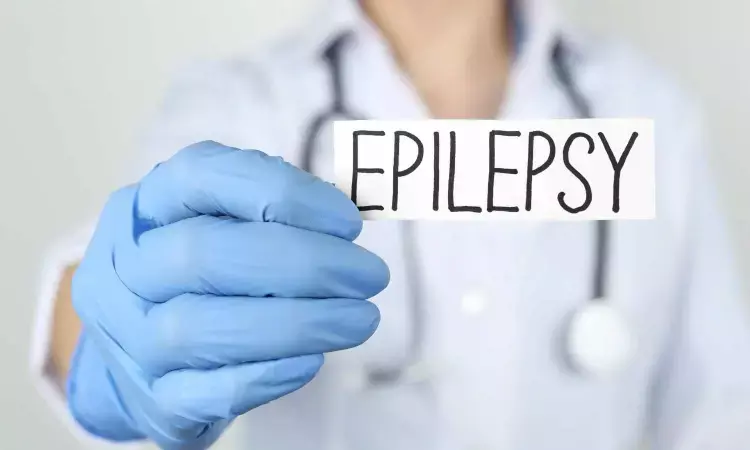- Home
- Medical news & Guidelines
- Anesthesiology
- Cardiology and CTVS
- Critical Care
- Dentistry
- Dermatology
- Diabetes and Endocrinology
- ENT
- Gastroenterology
- Medicine
- Nephrology
- Neurology
- Obstretics-Gynaecology
- Oncology
- Ophthalmology
- Orthopaedics
- Pediatrics-Neonatology
- Psychiatry
- Pulmonology
- Radiology
- Surgery
- Urology
- Laboratory Medicine
- Diet
- Nursing
- Paramedical
- Physiotherapy
- Health news
- Fact Check
- Bone Health Fact Check
- Brain Health Fact Check
- Cancer Related Fact Check
- Child Care Fact Check
- Dental and oral health fact check
- Diabetes and metabolic health fact check
- Diet and Nutrition Fact Check
- Eye and ENT Care Fact Check
- Fitness fact check
- Gut health fact check
- Heart health fact check
- Kidney health fact check
- Medical education fact check
- Men's health fact check
- Respiratory fact check
- Skin and hair care fact check
- Vaccine and Immunization fact check
- Women's health fact check
- AYUSH
- State News
- Andaman and Nicobar Islands
- Andhra Pradesh
- Arunachal Pradesh
- Assam
- Bihar
- Chandigarh
- Chattisgarh
- Dadra and Nagar Haveli
- Daman and Diu
- Delhi
- Goa
- Gujarat
- Haryana
- Himachal Pradesh
- Jammu & Kashmir
- Jharkhand
- Karnataka
- Kerala
- Ladakh
- Lakshadweep
- Madhya Pradesh
- Maharashtra
- Manipur
- Meghalaya
- Mizoram
- Nagaland
- Odisha
- Puducherry
- Punjab
- Rajasthan
- Sikkim
- Tamil Nadu
- Telangana
- Tripura
- Uttar Pradesh
- Uttrakhand
- West Bengal
- Medical Education
- Industry
Epilepsy and use of anti-seizure medications tied to increased osteoporosis risk: JAMA

Canada: A cohort study of 6275 patients revealed that the development of epilepsy and the use of antiseizure medications (ASMs) is associated with an increased risk for osteoporosis, irrespective of enzyme-inducing capacity. The findings, published in JAMA Neurology, indicate that routine screening and prophylaxis should be considered in all epilepsy patients.
The researchers reported that the time to incident osteoporosis was 41% faster after incident adult-onset epilepsy independent of ASM use. The time to osteoporosis was 9% faster with exposure to enzyme-inducing ASMs (eiASMs) and 23% faster for non–enzyme-inducing ASMs (eiASMs), independent of osteoporosis.
Both epilepsy and enzyme-inducing antiseizure medications have varying reports of an association with increased osteoporosis risks. However, no studies have been performed to date that have investigated these associations at a population level with a specific focus on osteoporosis clinical diagnosis.
Colin B. Josephson, Cumming School of Medicine, University of Calgary, Alberta, Canada, and colleagues aimed to quantify and model the independent hazards for osteoporosis associated with incident epilepsy and eiASMS and non-eiASMs.
The open cohort study was conducted from 1998 to 2019, with a median follow-up of 5 years. Data were collected for 6275 patients from hospital electronic health records and the Clinical Practice Research Datalink. All of the patients who met the inclusion criteria were accepted. Inclusion criteria were acceptable data from Clinical Practice Research Datalink, aged 18 years or older, follow-up after the Hospital Episode Statistics patient care linkage date of 1998, and free of osteoporosis at baseline.
Of 8 095 441 identified adults, 6275 had incident adult-onset epilepsy (51% females; incidence rate, 62 per 100 000 person-years) with a median age of 56 years.
Incident osteoporosis (study outcome) was determined through Cox proportional hazards or accelerated failure time models where appropriate.
The study revealed the following findings:
- When controlling for osteoporosis risk factors, incident epilepsy was independently associated with a 41% faster time-to-incident osteoporosis (time ratio [TR], 0.59).
- Both eiASMs (TR, 0.91) and non-eiASMs (TR, 0.77) were also associated with significantly increased risks independent of epilepsy, accounting for 9% and 23% faster times to develop osteoporosis, respectively.
- The independent associations among epilepsy, eiASMs, and non-eiASMs remained consistent in the propensity score–matched analyses, cohorts restricted to adult-onset epilepsy, and cohorts limited to late-onset epilepsy.
"Our findings suggest that epilepsy is independently associated with a clinically meaningful increase in osteoporosis risk, as are both eiASMs and non-eiASMs," the researchers wrote. "Routine screening and prophylaxis should be considered in all epilepsy patients." They suggested that epilepsy patients are more likely to be vitamin D deficient, and those who are deficient may still benefit from routine supplementation.
Randomized controlled trials (RCTs) studying this approach universally in epilepsy are expediently needed, as are evidence-based algorithms for routine osteoporosis screening, regardless of ASM type," they concluded.
Reference:
Josephson CB, Gonzalez-Izquierdo A, Denaxas S, Sajobi TT, Klein KM, Wiebe S. Independent Associations of Incident Epilepsy and Enzyme-Inducing and Non–Enzyme-Inducing Antiseizure Medications With the Development of Osteoporosis. JAMA Neurol. Published online June 12, 2023. doi:10.1001/jamaneurol.2023.1580
Dr Kamal Kant Kohli-MBBS, DTCD- a chest specialist with more than 30 years of practice and a flair for writing clinical articles, Dr Kamal Kant Kohli joined Medical Dialogues as a Chief Editor of Medical News. Besides writing articles, as an editor, he proofreads and verifies all the medical content published on Medical Dialogues including those coming from journals, studies,medical conferences,guidelines etc. Email: drkohli@medicaldialogues.in. Contact no. 011-43720751


